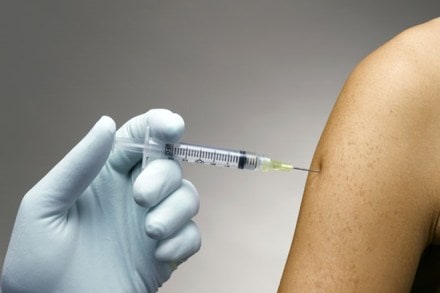A new study by researchers at Pennsylvania State University and Yale University, which highlights a temporal relation between some neuropsychiatric disorders and vaccination in a group of 6-15 year olds in the US, looks certain to pump up vaccine hesitancy, popularly known as the anti-vaccination movement. This is despite the researchers insisting that their findings warrant further investigation, and can’t be construed as evidence of a causal role of vaccines in the aetiology of these conditions. But, the high-pitched anti-vaxx movement has already caused a measles crisis in the US and is listed by the WHO as a top global health threat. It has latched on to specious research and patently false inferences drawn from legitimate studies in the past; so, it is likely it will use the new study as ammunition, too. The study, published in the journal Frontiers in Psychiatry, opens up a new area of scientific enquiry. Thus, from a public health perspective, nations must collaborate on follow-up research.
The Yale-PennState study found that children diagnosed with neuropsychiatric disorders like anorexia nervosa, obsessive compulsive disorder, anxiety disorder and chronic tic disorder between 2002 and 2007, and matched with two control groups—control conditions being broken bones and open wounds—were more likely to have received vaccines in the previous 1-year period. About 10% of children with open wounds had received vaccinations, against 20% of those diagnosed with anorexia having received vaccines. Specifically, children with OCD were more likely to have received influenza vaccine within the preceding 3-, 6- and 12-month period, anorexia nervosa in the preceding 3- and 6-month period, anxiety disorder in the preceding 6- and 12-month period, and tic disorder, also, in the preceding 6- and 12-month period. While there were a high number of children with broken bones who had received vaccinations, this wasn’t as high as the number of those with the neuropsychiatric conditions. These findings assume significance against a backdrop of reports of increased incidence of narcolepsy in some European countries following vaccination with AS03 adjuvanted H1N1 vaccine, and a three-fold increase in narcolepsy in China following the 2009 H1N1 pandemic as reported by studies. Cross-reactivity—in which antibodies prompted by a vaccine not only attack pathogen protein but also human proteins (manifesting as an autoimmune disorder)—has been reported in the case of the Pandemrix, the H1N1 vaccine. Now, studies show narcolepsy could be an autoimmune disorder, but the pathway leading to immune-related narcolepsy is not completely understood, as evidenced by a Stanford study on the increase in incidence of narcolepsy in Chinese patients of the 2009 pandemic, and other factors are believed to be involved, too. Also, if a vaccine is administered when inflammation, which can also be a trigger of autoimmune disorders, is present, it can have a deleterious effect on brain development, one of the study’s authors told Yale Daily News. The Yale-PennState researchers have thus called for replication in a larger population-based sample, involving assessment of a variety of host factors, including the subject’s genomic and epigenomic make-up, her microbiome, history of psychosocial stress, infections, and even vaccination history.
ALSO READ: India among fastest growing large economies in the world, says IMF; here’s what’s needed to sustain growth
Against the backdrop of a rise in vaccine scepticism, a sane discussion on vaccines’ safety is needed. Considering their role in controlling morbidity and mortality, and the limitations of the Yale-PennState research, this can only happen if further research is undertaken without jeopardising trust in vaccination programmes.
